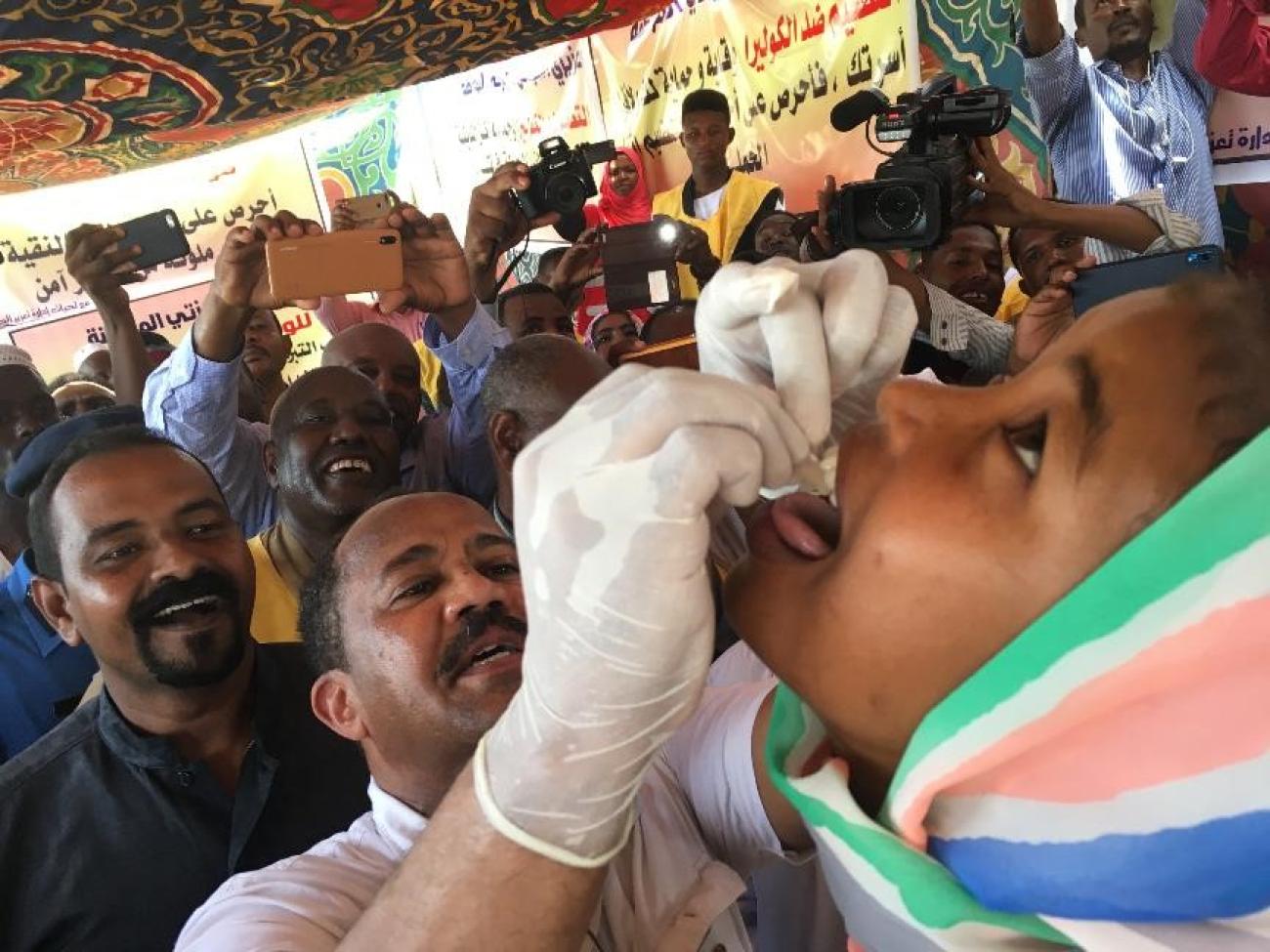Sudan declared an outbreak of cholera on 8 September 2019 after a noticeable increase in the number of cholera cases reported in the two states of Sinnar and Ble Nile, central and south the country. The total number of reported cases till 15 October was 288.
As an integrated part of the current outbreak response strategy, oral cholera vaccines (OCV) have been mobilized by the World Health Organization (WHO) through coordination with the International Cholera Coordination Group (ICG).
Based on a public health risk assessment, 14 localities in the states of Sinnar and Blue Nile have been determined to be at high risk for further spread of the cholera outbreak.
In addition to current prevention and control measures, WHO is working with the Federal and State ministries of health as well as other health partners to provide Oral Cholera Vaccines in an (OCV) immunization campaign for vulnerable populations in eight localities of the mentioned states. The campaign targeted approximately 1.65 million people (1 year and older) with 3.3 million doses of oral cholera vaccine. This is the second time Sudan introduces the OCV vaccine to the country.
The 1st round of the campaign was successfully launched by the FMOH, WHO, and partners on 11 Oct. The OCV was distributed through fixed sites and mobile teams to reach special population of the targeted areas. Evening house-to-house visits were conducted by SMOH teams to cover the male population who were busy at work during daytime.
“Two doses of vaccine are required for an individual to be protected,” said Dr. Akram Ali Altoum, Federal Minister of Health during a field visit to Sinja locality in Sinnar State. “The campaign will be followed by a second round of doses in a minimum of 4 to 6 wks interval to complete the vaccination,” he added. “Such a campaign to be effective, it is vital that a second dose is administered,” Minister added.
“Additional staff from WHO and health partners have been deployed to affected localities in order to support the Ministry of Health in the cholera response measures and facilitate the logistics of the campaign in affected locations to ensure protecting as many people as possible,” said Dr. Naeema Al Gasseer, WHO Representative in Sudan.
Health education and awareness raising of the affected community are key components to ensuring the successful implementation of the OCV campaign. In order to achieve herd immunity, all members of a family above 1 year of age must be vaccinated.
Regular monitoring and supervision of the campaign activities took place by teams from WHO, the State Ministry of Health, and partners with evening meetings conducted in each locality to ensure maximum population of affected localities administered the vaccine.
As of day 5 of the campaign, the cumulative coverage reached 97.4% in Sinnar and 78% in Blue Nile. The campaign was planned to extended for additional two days to catch up the missed population of the targeted localities in both states and additional OCV doses have be requested to cover three newly affected localities in Sinnar.
The provision of safe water, sanitation and personal hygiene will continue to be the critical cholera prevention and control measures. Cholera vaccination is a safe and effective additional tool that can be used under the right conditions to supplement existing priority cholera control measures, not to replace, them.
“we must accelerate our prevention and control measures especially safe drinking water before, during and after the 2 successive rounds of the campaign” Dr. Al Gasseer added.
WHO support to this campaign was made possible with the generous contribution from Gavi and the International Cholera Group (ICG).


